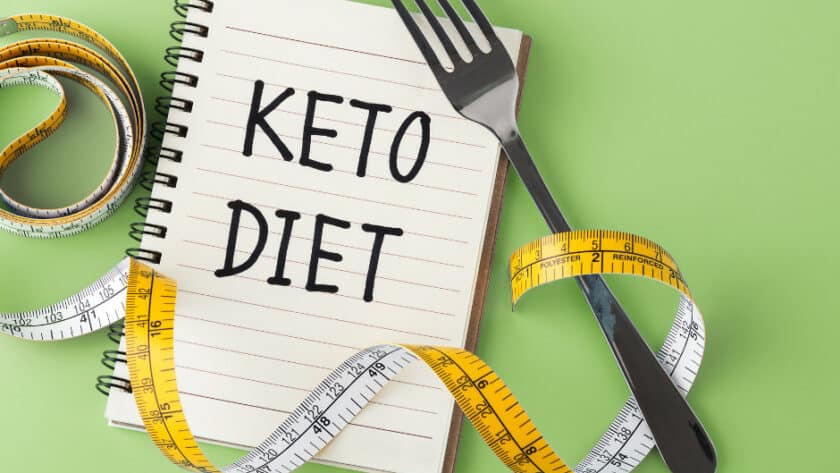Keto Diet’s Effects on Appetite Regulation and Hunger Cues
Are you considering the keto diet and wondering how it might affect your appetite and hunger cues? You’re not alone. Many people are curious about the impact of this popular low-carb, high-fat diet on their body’s natural signals for hunger and satiety. In this article, we’ll explore the science behind the keto diet’s effects on appetite regulation and provide specific answers and solutions to help you make informed decisions about your health.
Understanding the Keto Diet
Before diving into the effects of the keto diet on appetite regulation, let’s briefly review what the keto diet is all about. The ketogenic diet, or keto diet for short, is a low-carbohydrate, high-fat diet that aims to shift your body’s primary fuel source from glucose (sugar) to ketones (fat). By drastically reducing your carbohydrate intake and increasing your fat consumption, your body enters a metabolic state called ketosis, where it becomes more efficient at burning fat for energy.
Appetite Regulation and Hunger Cues: The Basics
Appetite regulation is a complex process involving hormones, neurotransmitters, and other signaling molecules that communicate between your brain and your digestive system. Some of the key players in appetite regulation include:
– Ghrelin: Often called the “hunger hormone,” ghrelin is produced in the stomach and signals to the brain that it’s time to eat.
– Leptin: Produced by fat cells, leptin is sometimes referred to as the “satiety hormone” because it helps signal to the brain that you’re full and should stop eating.
– Insulin: This hormone, produced by the pancreas, helps regulate blood sugar levels and plays a role in appetite regulation by signaling to the brain that you’re full.
Hunger cues, on the other hand, are the physical and psychological signals that your body sends to let you know it’s time to eat. These can include stomach growling, low energy levels, irritability, and even food cravings.
How the Keto Diet Affects Appetite Regulation
The keto diet’s impact on appetite regulation is primarily due to its effects on the hormones and neurotransmitters involved in this process. Here’s a closer look at how the keto diet influences these key players:
1. Ghrelin
Research suggests that the keto diet may help reduce ghrelin levels, leading to decreased hunger and increased feelings of fullness. A study published in the journal Obesity found that participants following a ketogenic diet experienced a significant decrease in ghrelin levels compared to those on a high-carbohydrate, low-fat diet. This reduction in ghrelin may be one reason why many people report feeling less hungry on the keto diet.
2. Leptin
The keto diet’s effects on leptin are less clear, with some studies suggesting that it may increase leptin sensitivity, while others show no significant changes in leptin levels. However, the overall impact of the keto diet on appetite regulation may still be positive, as the reduction in ghrelin levels and other factors may help counteract any potential changes in leptin.
3. Insulin
One of the primary goals of the keto diet is to improve insulin sensitivity. Which can help regulate blood sugar levels and reduce the risk of type 2 diabetes. Improved insulin sensitivity may also contribute to better appetite regulation. As insulin plays a role in signaling to the brain that you’re full. A study published in the journal Nutrition & Metabolism found that participants on a low-carbohydrate, high-fat diet experienced improved insulin sensitivity and reduced hunger compared to those on a high-carbohydrate, low-fat diet.
4. Neurotransmitters
The keto diet may also affect appetite regulation by influencing the levels of certain neurotransmitters in the brain. Such as serotonin and dopamine. These neurotransmitters play a role in regulating mood, appetite, and reward-seeking behavior. Some research suggests that the keto diet may increase the availability of these neurotransmitters. Potentially leading to improved appetite regulation and reduced cravings.
Practical Tips for Managing Appetite on the Keto Diet
While the keto diet may have a positive impact on appetite regulation for many people, it’s essential to listen to your body and adjust your eating habits accordingly. Here are some practical tips for managing appetite and hunger cues on the keto diet:
1. Eat nutrient-dense, whole foods
Focus on consuming high-quality, nutrient-dense foods like vegetables, healthy fats, and lean proteins. These foods can help keep you feeling full and satisfied while providing essential nutrients for overall health.
2. Stay hydrated
Drinking plenty of water can help you feel full and prevent overeating. Aim for at least eight 8-ounce glasses of water per day. And consider drinking a glass before meals to help curb your appetite.
3. Get enough sleep
Lack of sleep can disrupt appetite-regulating hormones and increase hunger. Aim for 7-9 hours of sleep per night to support healthy appetite regulation.
4. Manage stress
Stress can also impact appetite regulation and lead to emotional eating. Incorporate stress-reducing activities like exercise, meditation, or deep breathing exercises into your daily routine.
5. Listen to your body
Pay attention to your hunger cues and eat when you’re truly hungry, not just out of habit or boredom. It’s essential to honor your body’s signals and nourish it with the nutrients it needs.
In summary, the keto diet may have a positive impact on appetite regulation and hunger cues for many people. This is due to its effects on hormones and neurotransmitters involved in this process. By following the practical tips outlined above, you can support healthy appetite regulation and make the most of your keto diet experience.




